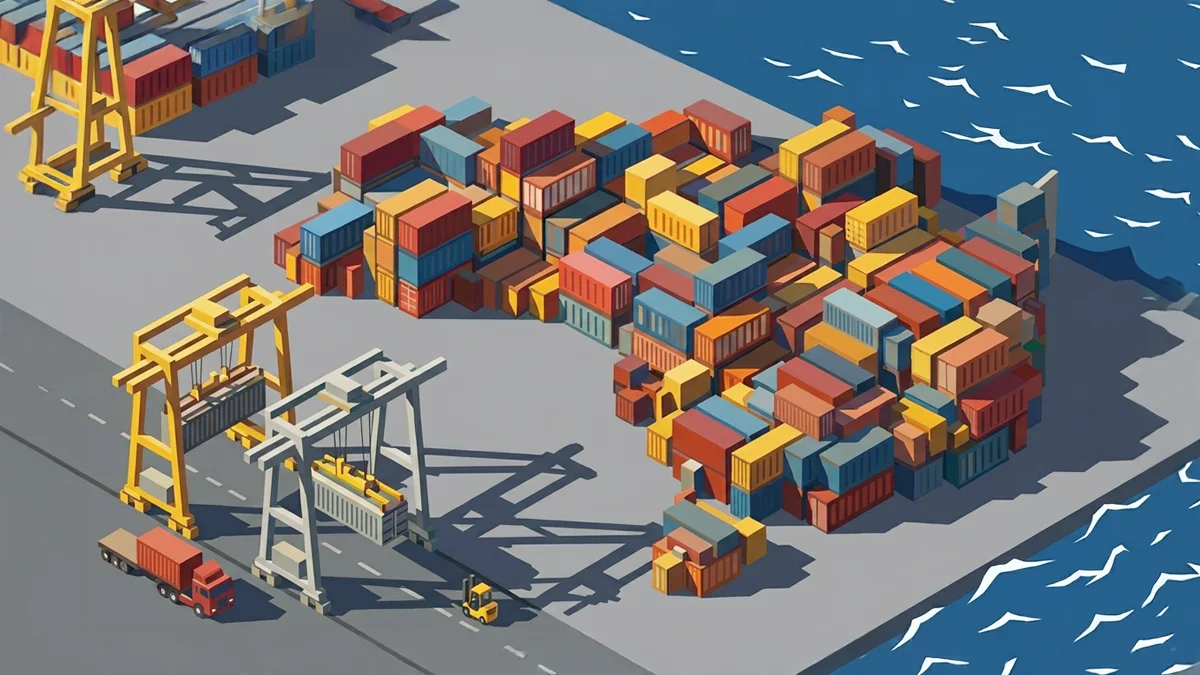(Re)in Summary
• As firms become more conservative amid tariff uncertainty and supply chain regionalisation, Yann Barbarroux, Founder of Otonomi, sees an opportunity for enhanced risk management through parametric solutions.
• Industry reports show strong demand for supply chain disruption cover, but major gaps and limited insurance options persist.
• The pandemic highlighted supply chain vulnerabilities, with cargo losses costing the logistics industry up to US$50b annually.
• Despite capacity challenges, shipping lines and incumbent carriers continue showing interest in parametric products.
As the insurance market recalibrates amid tariff uncertainty and supply chain regionalisation, firms are becoming more conservative in risk management. Amid the shifting landscape, Yann Barbarroux, Founder of insurtech Otonomi, is betting that insureds will embrace parametric cargo delay coverage.
“People are going to be a little more conservative with their budgeting in terms of resource planning, and if they see a 20-30% decrease in international shipping, they might scale back,” Barbarroux tells (Re)in Asia. “[But] a decrease in international exports does not mean that the risk [insureds face] is decreasing. I think it’s time for them to take risk management practice in a more reasonable, active manner.”
Tariff volatility has cast a shadow on insurers and insureds alike. Emerging trade wars are forcing marine underwriters to be more cautious as the industry grapples with potential supply chain disruptions, unpredictable costs and shifting trade routes. Goods are being surrendered to shippers and abandoned at ports amidst a protectionist shift.
Last Wednesday (May 28), Trump’s Liberation Day tariffs were halted by the Court of International Trade, with a second federal court blocking the US President’s authority to unilaterally impose tariffs on early Thursday (May 29). Mere hours later, another court granted the Trump administration’s request to reinstate the tariffs as legal proceedings play out.
This comes after Trump instated a tariff pause with China as trade negotiators hammer out a deal, which has led to shippers scrambling to restore trans-Pacific shipping capacity and massive hikes in shipping rates.

Yann Barbarroux
Founder of OtonomiBut despite strong demand for more comprehensive solutions to address supply chain disruptions, significant gaps remain. According to a 2023 WTW report, 89% of companies identified supply chain disruption coverage as “mission critical” or “necessary”. Yet, nearly 80% stated that “a lack of insurance options” was one of their biggest obstacles to managing these risks over the next three to five years. The report also noted that current solutions offer only a “wafer-thin” patchwork of protection, with the pandemic exposing major coverage gaps.
“We are addressing one of the biggest issues out there,” said Barbarroux. “We’ve been on it for four years, and we’re still at the beginning of the journey.” Parametric cargo delay insurance is still nascent, he notes, with reliable access to secure and affordable cargo tracking only emerging in the last five to seven years. “That’s still a novelty,” he said.
But insureds care less about the novelty of parametric solutions than their simplicity, transparency and reliable claims processes, he added.
“There’s only one slide in my presentation that talks about parametrics. We talk about the simplicity, transparency and speed, and that’s what matters to the customer,” he said. “When they know that the timestamp [of delivery] is the triggering event – and they can verify independently, without us telling them – when they know it’s non-disputable and that they get paid within seven days, that’s the revolution.”
Firsthand testimonials, such as the cherry losses on the Maersk Saltoro in Chile, have helped demonstrate the value. “They’ve never seen an insurance product that pays out that fast. And that’s our trademark,” said Barbarroux.
Tariffs have also led to businesses taking a greater interest in delay insurance. It’s become a “critical risk management tool”, said Barbarroux. “The unpredictable nature of tariff policies means businesses can’t plan around disruptions, making delay insurance essential for managing supply chain volatility.”
Yann Barbarroux
Founder of OtonomiCapacity pains
While the growth potential for cargo delay parametric products remains huge despite the current market climate, capacity issues persist.
“The maritime freight market is a tremendous market, but it’s also very slow-moving,” said Barbarroux. To match the same capacity of large insurers like Chubb, AIG or AXA, Otonomi must start small. “Not only will we be able to check the track record of our performance, [but] we are also going to be able to learn from the markets and improve our product,” he said.
For underwriters and carriers, Otonomi’s policy structure and risk management approach are paramount. The firm’s parametric product has reduced claims administration costs to 2% of every premium dollar – a significant factor for carriers – and provides predictable payout, said Barbarroux.
Yann Barbarroux
Founder of OtonomiBut concentration risk is still a huge issue. “When you get into a situation like the Baltimore bridge collapse, you get a full month of blockage on the East Coast. Underwriters don’t like it,” said Barbarroux. “They’re like, ‘Am I going to lose 10 million, or 100 million?’ It’s very hard to tell. In our case, we have accumulation control in real time, and we know at any point in time how much we have in the book, and we can stop underwriting.”
Accumulation control has provided partial success in managing tariff-related risk concentration, but the complexity of the modern supply chain has made it difficult. “Traditional accumulation control alone isn’t sufficient,” he added. “Success requires combining flexible risk limits with real-time analytics, supply chain visibility, and scenario-based contingency planning rather than relying on static concentration controls.”
It’s this innovation – providing real-time risk factors for insureds and underwriters – that has driven Otonomi’s growth. The Brooklyn-based startup raised US$3.4m in a funding round last year, led by early-stage venture capital firm ATX Ventures.
The firm saw increased quote inquiries from exporters after the MV Maersk Saltoro breakdown at sea sparked interest in parametric solutions. Otonomi said it is currently working with carriers to develop new maritime cargo coverage but declined to reveal more details.
Shipping lines are also showing interest, noted Barbarroux. “They’re interested in coming in and helping us establish the product and bring their own capacity to a certain extent,” he said.
In times of volatility, shipping lines have pricing advantages as they know the market better than anyone, even as they pay more in claims, Barbarroux added. “It’s a win-win situation for them,” he said.
Capacity for parametric cargo delay products – in both time-critical air freight and maritime cargo – can come from traditional insurers and alternative sources, he said. “There’s a whole captive capital out there that should be utilised more effectively to insure and protect against disruptive risk, and we are the conduits to do so.”
Trucking along
Tariff volatility and global supply chain shifts signal choppier waters ahead. “Right off the bat, [tariffs are] going to create delays in logistics, transportation, imports and exports, and it’s not going to be well-managed in the short-term,” Barbarroux said. “It’s going to create a lot of this congestion.”
Even as tariffs reroute supply chains, shift manufacturing and impact export markets, goods will continue moving. “If anything, domestic transportation is going to be increasing, and maybe international ground transportation across borders, by trucks, is what can be affected,” he added.
Yann Barbarroux
Founder of OtonomiOtonomi is developing solutions for these challenges alongside their aviation and maritime cargo delay products, with trucking delay coverage planned for launch in the second half of this year.
Overall, Barbarroux believes having an open conversation about risk management is the first step to improving the market.
“I would be glad to have more conversations with incumbents when it comes to understanding their risk and the risk of their customers, and what we can do to improve it or bring new value,” he said. “Even though you’re not going to invest right away, you’re going to be learning new things. It’s a way to open the dialogue.”















